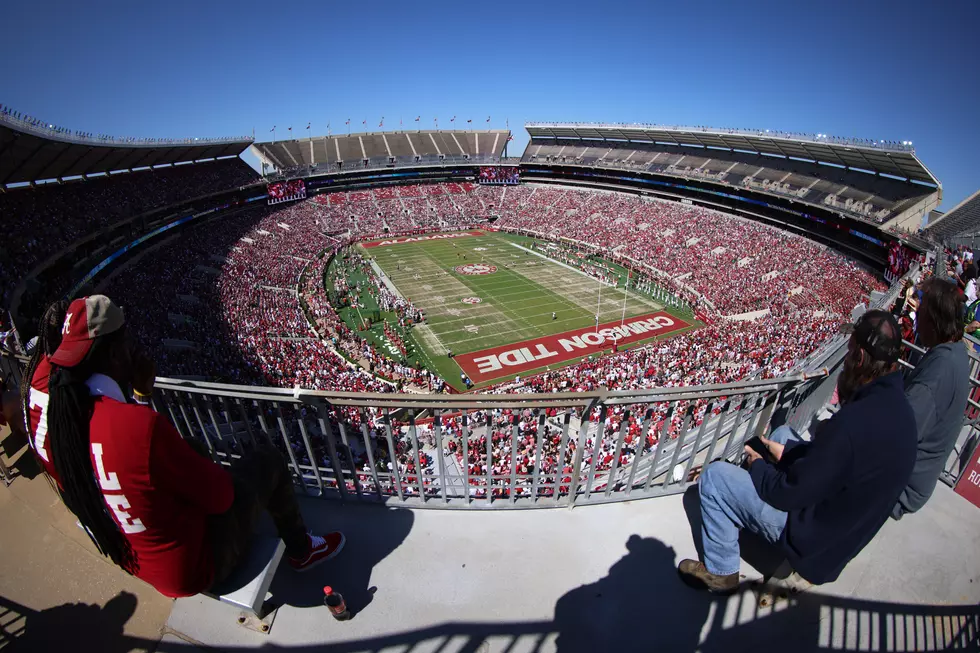
Playoff Expansion is Coming And it’s Not the End of the World
Tuesday brought news that those in power over the College Football Playoff have discussed the eventual expansion of the number of teams, and a 12-team playoff is gaining steam.
According to an initial report by Yahoo! Sports, the new structure will have automatic bids for the champions of the Power 5 conferences (SEC, PAC-12, Big 10, Big 12 and ACC) an automatic bid for the highest rated Group of 5 conference (MAC, American, Sun Belt, Conference-USA, and Mountain West) and six additional at-large bids. While the nature of the games and how they will take place remains to be cemented, the top four teams would likely receive byes and the top bowl sights will host the playoffs.
Naturally, the first thought for many opposed to expansion revolves around the idea of the elite programs that already dominate the current playoff format. To put it short, "What's the point?" Either Alabama, Clemson or Ohio State have been featured in every College Football Playoff bracket and one of those schools has won the national championship every season since its inception except for 2019 when LSU won the title, but did, of course, play Clemson for the championship.
The quick, unprocessed thought being that these teams cannot be toppled, so let them continue to run the show. Of course, it's not as if the perceived number one and two teams are always head and shoulders above the rest. Believe it or not, the current playoff structure is rather balanced, despite its imperfections.
Number one seeds are 5-2 in playoff games, but 2-3 in championship games. Number two seeds are 4-3 in playoff games, but 3-1 in championship games. Number three seeds have the worst record, going 0-3 in championship games. Surprisingly, though number four seeds have a tough time getting out of the playoffs, the two teams to make it through, naturally Ohio State in 2014 and Alabama in 2017, both won the championship.
So the current playoff structure works about as well as any other. More often than not, the best teams through the regular season appear in or win the championship, while the chance for the lower seeds to make it to the big game are reasonably high.
Again, "What's the point?"

Opportunity, for one thing. See, If we base a running hypothetical off Pro Football Focus's bracket here, sure Coastal Carolina, Indiana and Iowa State would be underdogs, but there's no denying that Coastal vs. Texas A&M wouldn't bring eyes and in turn revenue. The same goes for Indiana vs. Oklahoma or Iowa State vs. Florida.
At the very least, would any of those games have been more exciting than Alabama vs. Notre Dame? Because that's the point.
Traditionalists don't like the idea of expansion in large part because Cinderella stories don't exist in college football. Should Coastal Carolina survive Texas A&M and meet Alabama, Coastal would probably get crushed. But that's not remotely the point because Alabama in 2020 wasn't going to be stopped by any of the teams in this hypothetical bracket. And that's perfectly fine.
But we play the games on the field, not on paper. So much of college football is determined by paper that the fanbase for the sport has been fooled into believing that it has the most important regular season in sports, and that couldn't be further from the truth. The NFL has the most important regular season, because every game goes into a formula that determines the playoffs, and winning division and conference games play the biggest factor. In college football, the elite teams (Alabama, Clemson, Ohio State) routinely power through their schedules. Their regular seasons aren't important.
For the schools that do have important regular seasons, like Cincinnati and Coastal Carolina, their reward for a great season is playing in a bowl game against a team that just missed the playoffs and as a result has its best players opt out of a meaningless bowl game.
Schools that just miss the playoffs are stuck in purgatory because they have nothing to recruit with against Alabama, Ohio State and Clemson. That would be fair, if the system that asks every year "Who's In?" wasn't searching for one team.
And no, the 13-16 teams don't get the same luxury of complaining about this hurdle.
Because the point of a playoff isn't inclusion. The point of a playoff isn't to provide parity. The point of a playoff isn't to handcuff the elite.
No, the point of a playoff is to allow the best teams to play against the other best teams and determine a champion. If Division 1 FBS college football only has four good teams out of 130, the system is broken. There's no point in a top 25 if teams 5-25 are considered scrubs. At that point, there's no point in a regular season or post season for the teams that have nothing to play for except in celebration of the idea that is college football.
The other point of a playoff is television revenue. The thought that a 12-team college football playoff couldn't challenge March Madness and its 64(!!!!!)-team field for television revenue is ridiculous. Fans will watch to see the underdog bite at the heels of Alabama, Ohio State and Clemson because eventually, one day, the underdog will take a big enough bite to win. Fans will watch the mid-seeded playoff games because those matchups will provide high-emotion outcomes that can propel a team past the juggernauts awaiting them in the next round.
The eventual college football expansion will take time to balance the playing field, but college football won't suffer. The elite programs won't suffer. Every other sport uses a larger playoff field than college football and every other sport crowns a worthy champion. Every other sport has dynasties.
Every other sport has low-seed champions. The Tampa Bay Buccaneers won this year's Super Bowl as a 5-seed over the Kansas City Chiefs, which had the best record in football.
When a 12-team playoff does arrive, it won't be perfect. It's possible, and perfectly acceptable, that Alabama, Clemson, and Ohio State could still dominate the tournament for the next decade. But it will make more sense to give fans more football that matters and to reward teams based on their regular season accomplishments.
The NCAA isn't a perfect construct. It never will be. But it will never willingly disturb college football to the point that the largest fan bases are turned away by its rules. But surely it sees the missing revenue on the west coast. The NCAA realizes that casual fans experience no worthwhile drama in the post season.
A 12-team playoff goes a long way in solving those problems without demoralizing what's already present.
The bottom line is that you who are reading these ramblings, whether you agree with me or not, will continue to watch and enjoy college football when the 12-team field is introduced. Maybe you'll find more enjoyment in a revamped structure, maybe you won't. But you won't find something else to do with your time on Saturdays between August and January.
But maybe someone else who doesn't enjoy the postseason will find a reason to watch. All those fans of the eight other teams that have met nothing at the end of the season but annoyance will at least have a drama filled Saturday to enjoy, win or lose.
For that very reason, college football playoff expansion is worth it.







